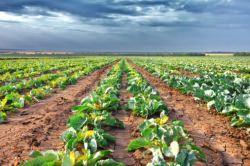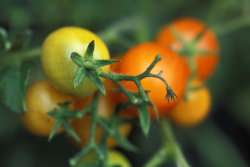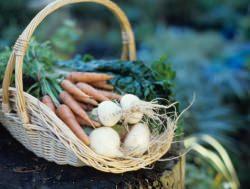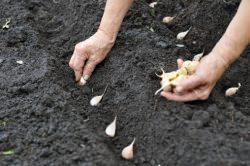Organic gardening
Post from EditorialsThe organic garden is the ideal solution for those who want to grow vegetables in an environmentally friendly and have available all year round only seasonal produce.
Organic gardening, as well as being a very viable solution to grow vegetables, it also helps to have throughout the year only products of the season for a healthy and balanced diet, with significant cost savings. The vegetables' organic cultivation is similar to traditional cultivation, with the difference that all steps should be followed without using chemicals. For this reason, for the care of an organic garden often have to follow special procedures.
Vegetable organic cultivation
 Growing an organic garden means to produce vegetables in full compliance of the habitat without the use of chemicals, the first phase of cultivation until harvest. There are in fact many commercial fertilizers completely natural and organic seeds whose use must be linked to farming methods that allow you to eliminate the use of chemicals. The weakest point of an organic garden is undoubtedly the prevention and cure of any disease and parasites, as the natural methods and manuals can be much weaker than chemical ones. Let us see how best to treat our organic garden.
Growing an organic garden means to produce vegetables in full compliance of the habitat without the use of chemicals, the first phase of cultivation until harvest. There are in fact many commercial fertilizers completely natural and organic seeds whose use must be linked to farming methods that allow you to eliminate the use of chemicals. The weakest point of an organic garden is undoubtedly the prevention and cure of any disease and parasites, as the natural methods and manuals can be much weaker than chemical ones. Let us see how best to treat our organic garden.
As mentioned above, each step must be carried out in harmony with nature, beginning with the preparation of the soil. This fact will be treated by removing, with the help of a hoe, aventuali stones and weeds that can steal water and nutrients to the soil.
Proper analysis of the soil also allows you to check the composition and thus allows to determine which integrate natural substances to make it more fertile. The point at which to place the garden will then be well exposed to the sun and protected from the wind.
The organic garden also can be achieved even if you do not have much space. The vegetables can indeed be grown in containers such as boxes windowsill pots to be placed on the balcony and windows and hanging baskets. Very important is the choice of vegetables to grow. Are preferred those who have a greater resistance to adversity, especially against diseases.
Lettuce, onion, garlic, parsley, basil, zucchini and tomatoes are the ideal products to be included in an organic garden. The sowing of vegetables will be doing some deep holes depending on the size of the seeds, which of course must be strictly organic.
If the seeds are very large, the groove should be larger than about three or four times while in the case of small seeds will be sufficient to make small holes near the soil. Once implanted the seed, the holes, which should ensure a certain distance between the future plants, will have to be covered with soil.
The organic seeds are now widely available on the market. Specialized in this type of production is the Arcoiris of Modena, which offers a wide variety of plant seeds vegetables, aromatic and medicinal plants. The Bejoitalia however, for more than ten years has been engaged in the research and production of new organic variety, commitment from which comes a great assortment of certified seeds and properly processed.
Very important is also the fertilizer within the organic. Manure, the manure, compost and organic manure fertilizers are ideal for the optimal development of all natural plants. Very useful is also the green manure or green manure, which consists in producing herbs picked and chopped should be left to decompose directly on the ground.
The Biofarm sells directly online green manure seeds available in mixtures, useful for practicing the most of this type of fertilization. The Biogarden of Parma, however, provides that in addition to the foliar fertilize the soil can ward off harmful insects and pests. Even the 'organic garden watering should be done with care. To prevent the onset of fungal diseases in fact be necessary to water the plants locally using the method to drop. In this way, the amount of water administered will be balanced and will avoid dangerous waterlogging.
To water the plants can also be used the rainwater to be collected in suitable containers. As for the prevention and treatment of the main diseases that can afflict the organic vegetable garden, there are several natural methods that allow us to avoid the use of chemicals.
Certain effectiveness is for example the rotation of crops on the ground, which prevents the proliferation of specific parasites of certain vegetables. Also to avoid the attacks of parasites is very useful cultivate early or late varieties that have a growth cycle which does not coincide chronologically with the biological their specific parasites.
Planting hedges close to the garden instead allows you to spread small insectivorous animals while some insect pest antagonists may be released directly into the environment, so using the so-called biological control. If, however, diseases and pests have now attacked the garden, then you will need to use natural remedies specific. Of great utility is for example the manual removal of both the adult parasites and their larvae of weeds. If you want to use a remedy less demanding, it is recommended to choose the natural insecticides very effective as the macerated vegetable or fungicides based on copper and sulfur.
79741 REGISTERED USERS










